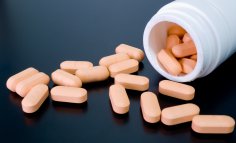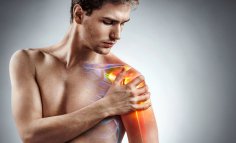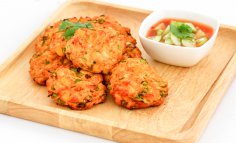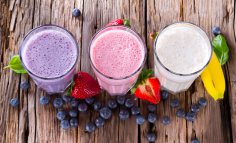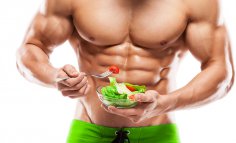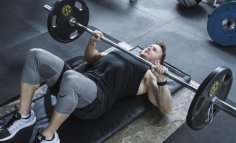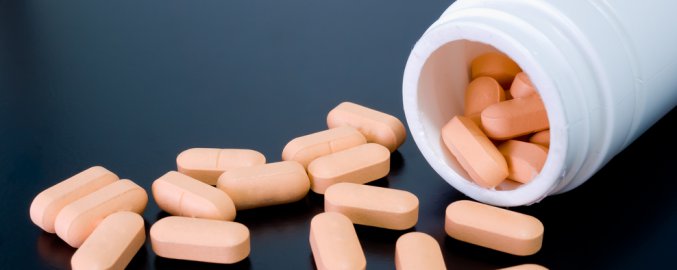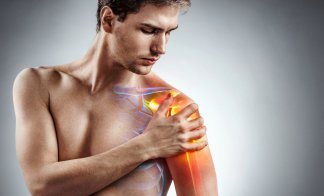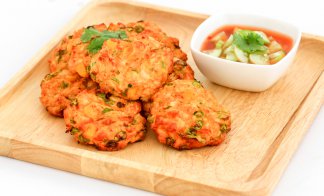Veldig leseverdig intervju med en av verdens ledende forskere/autoriteter innenfor trening/kosthold.
Dr. Kevin Tipton’s Interview to
Bodybuilders.grKavouri, Greece
Sunday, November 15, 2009
YK: We have with us Dr. Kevin Tipton. Thank you very much for giving this interview to us, www.bodybuilders.gr
KT: My pleasure.
YK: I should say first that Dr. Kevin Tipton is a Senior Lecturer in Exercise Metabolism in the School of Sport and Exercise Sciences, in the University of Birmingham, in the UK. His research focuses on exercise, nutrition and muscle metabolism in humans. So, I will just start with the first question: In your papers, you claim that protein needs for people who exercise may not be that different than protein needs for sedentary people. I quote from one of your recent papers that "scientific opinion on this controversy seems to divide itself in two camps: those who believe participation in exercise and sport increases the nutritional requirement for protein and those who believe protein requirements for athletes and exercising individuals are no different from the requirements for sedentary individuals. There seems to be evidence for both arguments." Does this refer to the least amount of protein necessary for maintaining muscle tissue, in both cases? And if so, is there such a thing as "optimal protein intake" for athletes (say for optimal muscle gain or optimal fat loss)? And in this intake, would you count ALL protein sources or only those of high biological value?KT: Yeah, that’s a very good question. Definitely, there is a difference between a protein requirement, which is by definition the minimum amount necessary and protein recommendation for an athlete based on whatever adaptation that athlete wants. So, if that athlete wants to have increased muscle mass for example, then yeah, I believe that the amount of protein that would be optimal for that is certainly going to be different than the requirement. Remember the requirement is based on nitrogen balance studies and the RDA (Recommended Daily Allowance). And that’s established based on the minimum amount of protein necessary to maintain nitrogen balance. So, the assumption is that nitrogen balance is actually what’s important, and of course, that’s not what an athlete is interested in. An athlete is interested in, you know, maybe it’s muscle mass, maybe it’s speed, maybe it’s something else, but that wouldn’t have anything to do with nitrogen balance, so yes, I believe there is an optimal protein intake for each athlete, and that’s what it is, it’s for each athlete. And even within bodybuilders for example, that protein intake could be different from one vs another.
YK: So, how can someone find his own optimal intake? Which are the factors that affect this? And, again, does he need to count all protein sources, including ones that are not very high in biological value?KT: Again, that’s a very important consideration. It’s an extremely complex situation and I guess my point is that if it is that complex, you’ve already identified several different factors which could influence the response, the adaptations. So, that’s why I argue that to say to a group of athletes, e.g. weightlifters, that they need to have “1.6 g/kg of protein” is silly. And, as far as the way you phrased your question, which is a good way to phrase it (“how to do that”), it’s not entirely clear, but, as a practitioner, people need to do the best they can to recommend the amount. Now, as far as what type of protein, I think there’s probably evidence that you can support the notion that animal-type of proteins, especially dairy proteins may have something to them. I think there still needs to be more work to establish that for sure. But, I think Stuart Philips studies this the last couple of years, we also did a study on milk, and you start to see some evidence that animal proteins may be superior to plant proteins. But, if your goal is to get to a certain amount of protein, then yes, the protein in a tomato is protein. It’s going to contribute amino acids. I mean, you certainly don’t want to skip that, you don’t want to say “that’s not there”, because it is, and those tomatoes, they provide a great deal of nutritional value. Now obviously, that’s important as well. So, I think that the fact is what your tomatoes or vegetables or something are gonna offer in the overall scheme of things is gonna be a relatively minor part, so those are really there for another reason. But, you certainly can’t ignore them as a protein source, it’s protein.
YK: You mentioned that nitrogen balance measurements have been used for a long time to define protein needs for sedentary people, and also for people who exercise. Now, there are some people who think that it’s not a very accurate way for measuring protein needs, but it’s more or less it’s like an indicator for the body's ability to adapt to a given dose of protein. For example, this study by Tarnopolsky in 1992, where they found that we have a nitrogen balance at around 1.6-1.7 g/kg/d RDA, but they didn’t measure any significant difference in muscle mass over time. So, do you think there is a more valid way to estimate protein needs for athletes other than nitrogen balance? For example, the 0.8 g/kg/d for sedentary people has been extracted also from nitrogen balance measurements.
KT: Yeah, you’ve hit on a couple of important points there. First of all, there are definitely limitations to nitrogen balance measurements. There are limitations to all measurements, but nitrogen balance does have limitations. Now, let me back up. You are absolutely correct; the RDA of 0.8 g/kg/d was established based on nitrogen balance. Mark’s studies were also nitrogen balance studies. So, in a direct comparison, like vs like – and Mark did extremely careful nitrogen balance measurements, which are very very difficult to do, but Mark is a fantastic scientist, so he did it absolutely right – so from that standpoint, it seems that, you talk about protein requirements, maybe they are a little bit higher for athletes, that’s entirely possible based on those data. But again, do we really care about a requirement? We want to know what’s optimal. And so you have to fit that within the context of their overall diet, within their carbohydrate intake, and within their total energy intake, and so there is maybe a gymnast for example, whose energy intake doesn’t support 1.6 g/kg/d. And maybe that gymnast needs to have 1.4 g/kg/d, or something like that. So, I mean I think you got to be very careful, and then the other side of that is yes, nitrogen balance has its problems, and especially the higher you go – as you alluded to this – the higher you go in protein intake, the less you can compare the nitrogen balance to other intakes, because the relationship disappears, as you said. There are several studies showing nitrogen balance increases without changes in lean body mass. They don’t match. And also, if you look theoretically, and, you know, I can bore you with some calculations…
YK: Go ahead.
KT. Theoretically, in some of those studies, at the very high protein intakes of 2.5 g/kg/d, that represents…, there are individuals in those studies that were putting on 15 g of nitrogen a day. That translates to, if you do the calculations, in theory that should relate to 100 kg of lean body mass in a year! And obviously, that’s not possible. So, you have to be very careful about interpreting nitrogen balance measurements.
YK: But, could the large amount of protein be a trigger for building a more humanly possible amount of muscle? Maybe you need to eat 2 g/kg/d in order to be able to build 10 kg of muscle per year. I mean, it doesn’t necessary mean that all the protein would go to muscle, but maybe large amounts of protein are some kind of a trigger at some level, I don’t know what level.
KT: That’s entirely possible, there’s no question, but that’s a different issue. To put the two together, what you are saying, and what I was gonna say, is that you can’t directly interpret the nitrogen balance. And that’s what people want to do. There may be a trend there, and yes, there may be sort of a match at some level, but you can’t directly extrapolate the nitrogen balance, because that’s impossible, it’s physiologically impossible. So, I think you just got to be careful about the interpretations. And then, you asked what about “what would you do”. Well, I think you suggested that, yes, ideally you put a very large number of athletes on this protein intake, and a very large number of athletes on that protein intake, and then you see which one has the adaptation that you want. But, think about the necessity of controlling those studies. The control that you have to have to get the sensitivity of the measurement that you need. Because, what we are talking about here is…differences in small percentages. Very small percentages. And the training stimulus is the majority of it, and what you eat is gonna be a relatively small part of that.
YK: If I may ask a question on that: In bodybuilding, people are interested mostly in lean body mass differences, right? They want to increase their LBM. So, why haven’t we seen – I mean I have never seen – a study where, for example, you have three groups of exercisers, and you have all three groups on a caloric surplus for, let’s say, 12 weeks, and then all these groups do the same training regimes, the same exercise. And then you get each of the groups to eat a different amount of protein. And then level out the rest of the calories. And you have the same amount of calories in all three groups, but different amounts of protein. If someone could carry out such a study, this would completely end the controversy about if you need or not more protein.
KT: Yeah.
YK: But, I have never seen such a study, I mean there are lots of studies, I think that in the past people were not interested in doing studies on bodybuilders and they would do protein studies mostly on elderly people, or – I don’t know. But, recently, there are studies which are targeted on bodybuilders, so…
KT: Ok, there are a couple of issues there. One of the reasons that there aren’t studies on bodybuilders is because bodybuilders haven’t funded them. These studies are very expensive. But, the reason they are on elderly is because government and others are trying to help elderly people, they don’t care about whether a bodybuilder wins or not. So, if bodybuilders want these studies done, they need to quit sitting in the gym and laughing at us about doing the other studies, they need to get their money together and fund them. Now, more and more companies are funding these things knowing that bodybuilders are indirectly funding them through their supplements. So, more and more companies are realizing now that they want to do weightlifting studies on weightlifters. The original studies were all done in untrained people, because you see the biggest response in untrained people. It’s the same thing you were suggesting earlier about the fasting state. You see a bigger response. You do that study first. If you don’t see anything, then you go away, you say “ok, that didn’t work”. So, the next step is then to do it on the trained people. And then see what the difference is, if it still works. Now, as far as the longitudinal type of training study you suggested…
YK: That’s a very typical scenario for many, at least recreational, and then also some more serious bodybuilders. They do a bulking phase for, say, three or four months, and then they gain fat at the same time, and they say, “ok, maybe I should have eaten more protein”.
KT.: Yeah, I mean, the bodybuilders I knew, and of course this was a while back, but, they would do that, and then they would lean down, and that seemed to work. Well, the problem is that, I bet you that in that period of time, in those already well-trained guys, who already had a very top response that the differences would be so small, that you would need so many of them to see those differences, to make sure it’s real, rather than statistically random type of responses. Then, you’d also had to control how much sleep they got, diet would have to be absolutely controlled, and if we think that different types of proteins are important, then we would have to control the type of protein, they all would have to eat the same things, and people don’t like to eat the same things, and so then you’d also have to have whether they are professionals or amateurs, if they are amateurs they are gonna have to work, so, are they stressed at work?
YK: Yes, it’s very difficult to isolate.
KT: The control of those studies is almost impossible to do properly. And so, there are studies, that take people for 12 weeks and train them and then give them different protein intakes, and there are some that say that more protein helps, and there are some that say it doesn’t. And the reason for that is because of this lack of control. And, they are almost all on untrained people to start out.
YK: I see.
KT.: So, it’s a very very difficult thing to do properly, it may never ever be done, because of the rigor that you would have to have. Put them in a metabolic work, then they just stay there. But, that’s not a real-life situation, so maybe that doesn’t apply either. So, you always have these issues that you got to account for. That’s why it’s such a tricky thing to do. It may never be done. I mean, tell the bodybuilders, if they want it done, to get their money together, and I’ll do it.
YK: Alright.
KT.: But, it’s not free, you know! It costs a lot of money! It’s not like we just sit there and think of these studies: “Ooh, that’s a great idea! Let’s do it!”. I mean, I just submitted 15 ideas to a funding agency, saying “here’s my ideas, do you like them, are any of these worth your money?”. And that’s just partial about the ideas that I have. I mean, the ideas are there. That’s not the problem. And a lot of them are the same things that you talked about, that you’ve identified as weaknesses in the literature. We see it, too. And we’d love to do some of those studies, it’s just that some of them you can’t do, and some of them you can’t afford.
YK: I see, that sounds very interesting.
KT: Unfortunately, it’s a practicality part of the science that a lot of people don’t understand is there. Now, science is so expensive, especially these protein synthesis studies. I mean, the stable isotopes that I use cost 500 GBP per gram. And, we just put in an order not too long ago for 30,000 GBP. And that’s just one aspect of the study. For a muscle sample, the analyses cost probably somewhere around 50-60 GBP per sample. So, think of the muscle biopsies, and everything and then you put it all together, and see you’re just talking…
YK: A lot of money.
KT: Yeah, so a study typically is a couple hundred thousand pounds.
YK: No supplement company would ever fund that?
KT: Oh no, they do. That’s where a lot of money comes from. But, we’ve got to convince them that it’s gonna help their…and I am not gonna test their supplement for them, I don’t believe in that, I believe in testing the science, what is this protein or that protein, what are the differences, it’s got to be a scientific question. So, you got to get that of balance of some scientific question that they are interested in, that they think they can use.
YK: Yeah. Ok, let’s move to the next question. Hypocaloric state. There have been some papers published where it is shown that definitely a higher-than-normal protein intake would help in preventing lean mass loss. In certain elderly women for example it has been shown, probably in athletes too, I don’t know, it makes sense up to a point. Of course, maybe recreational bodybuilders already ingest this amount of protein anyway. My question is, if this is true, can you use this information for maintenance and for hypercaloric states in order to minimize the muscle protein breakdown? Because, you mentioned that you have a muscle protein synthesis period followed by a muscle protein breakdown period. Would increasing protein in a diet attenuate somewhat the MPB? Because, that’s what it seems to be doing in hypocaloric states. So, if you consider that for the part that you have MPB, you are somewhat in a hypocaloric state temporarily…
KT: Ok, this is again a multi-layered issue. I will start with “funny you should ask”, because we just finished a study and it’s gonna be published in January, in weightlifters, hypocaloric, with high protein vs a regular diet.
(Her er den:
http://www.ncbi.nlm.nih.gov/pubmed/19927027)
YK.: Oh, but I have seen I think, I am not sure, not in weightlifters, but I have seen in normal people….
KT: Yeah, there’ve been at least twenty to thirty studies in overweight and obese.
YK: But, in athletes?
KT: Yeah, well there’s one – sort of – back in the late ‘80s. Basically, what we did is, we took weightlifters and for two weeks we put them on 60% of their normal calories, and they maintained their training the whole time.
YK: Ok.
KT: It was rough. That’s a very low calorie intake and they weren’t happy. But, we monitored their activity very well, and so what we saw was, one group was on a normal protein intake…
YK: What is “normal”?
KT: “Normal” was around 18% of their calories, and that’s what they naturally did anyway, so we just kept it at the same….but just dropped the calories, just dropped everything. In the protein group, we put them, they dropped the calories….
YK: Was this a low-carb or low-fat group?
KT: No, we substituted the fat, we kept the carbs.
YK: Ok.
KT. And I think that with athletes you have to do that, because if we lowered the carb percentage, then they couldn’t have done the training. And that’s the difference, I think, between athletes and untrained people, because their training wasn’t at a high enough level that if you dropped the carbohydrates it would hurt them. So, we kept the carbs and substituted fat, and what we saw was very interesting. As you suggested, there was less lean mass loss in the protein group. In fact, they almost…,well some of them looked like they actually gained lean mass despite the caloric intake. But, on average, they didn’t lose very much, whereas the other group did lose some lean mass. They both lost the same amount of fat, and so what that meant was that the group that was on the – sort of – normal diet composition, actually lost more total weight and the protein group lost less weight, but it was mostly fat. So, the lesson from that is you have to think about your athlete and you have to decide what that athlete needs to lose.
YK: How much protein on the high-protein group?
KT: 35%. And that translates to about 2.2-2.3 g/kg/d. But, because the calorie intake went down so much, it wasn’t that high.
YK: But, does the amount of muscle lost for the low protein group correlate with their initial lean body mass? I mean, common sense says that, if you are a bodybuilder and you have a lot of lean body mass, it’s gonna be more difficult for you to hang on to it when you are hypocaloric.
KT: No question, but the groups were matched for body composition. That would be the difference between the results that you see in the obese and overweight people vs the athletes, but in this case we matched it for lean body mass. There is always some wiggle room in there, but I don’t think that was the major factor. Now, as far as the protein breakdown side goes, we know for sure that, in almost – not all but – unless it’s a severe pathological state such as burns, or septic patients or something, that muscle mass is lost because protein synthesis goes down, not because breakdown goes up. Now, we didn’t have the money to measure the protein synthesis in that study. That’s what I want to do and I’ve proposed that and there is a “nibble” now to do the next step, which is to measure protein synthesis, but I think that the difference was that we maintained protein synthesis, not that we ameliorated protein breakdown.
YK: I understand.
KT: Cause, even in states where if you immobilize someone and they lose muscle as you do, it’s not because protein breakdown goes up, it’s because synthesis goes down. And protein breakdown actually goes down with it – when it’s measured. So, I think that, that extra protein probably was just maintaining protein synthesis better.
YK: It’s very interesting what you are saying. Next question: do you think carbs are important around a workout? Cause several people tend to avoid carbs, especially postworkout. They just only ingest protein, because they don’t want to attenuate fat loss, and so they want to have both benefits, increased muscle protein synthesis and increased fat loss at the same time, for a period of time. Would the insulinic response from whey only be enough for stopping MPB? Because, it has been quoted that we need carbs immediately after a workout only for the insulin. And muscle glycogen restoration is something which will take time eventually after some hours, if you are not going to repeat the exercise bout in a short time, you don’t really care about it.
KT: Well, but I would argue that’s the same with protein synthesis! I mean, probably the same thing. I think what we will find is it’s gonna be the same pattern starting with glycogen is that at first studies came out saying you got to have glycogen the first hour or two, or else, I mean, carbohydrates are crucial for endurance exercise. But then, they discovered that, unless you are gonna repeat that exercise very soon, probably you are gonna build enough just with the normal regular carbohydrate over the time. I bet you that protein is gonna be the same, same story. As far as breakdown goes, remember, I have written it in reviews myself that you have carbohydrates for the insulin response and when you look at net protein balance, you are talking about the balance of all proteins, so that insulin does seem to have the effect of not letting the protein breakdown go as high. But, protein breakdown is a very complex situation. There are at least four or five different pathways, and so when we measure protein breakdown, we are measuring all those at once, the sum total, which would really – sort of – equate to the weighted average of all those. And so, some of those I think are absolutely critical for the adaptive response. For example, the calpain system seems to be – and this is still not in humans necessarily, but at least in animals – seems to be responsible for the initial breakdown of damaged proteins from the exercise. And then that goes to the ubiquitin system. And then those peptide chains go to the ubiquitin system for the rest of the breakdown. So, it looks like probably these two work in concert to get rid of the proteins than you need to get rid of, so you can use those amino acids to build anew proteins that are gonna make you bigger and stronger. So, I think it’s much more complex than we understand, that just a damp in protein breakdown isn’t necessarily what we want to do. So, I really don’t have resolved that as far as making a recommendation goes, I think probably carbs aren’t gonna hurt anybody and that probably people overreact and say, you know “ooh, carbs bad!”, because people 20 years ago said “ooh, fat bad!”, and now it’s carbs, so, and before that, protein was bad! I think all of them are necessary, we evolved as a species to respond to these exercise stimuli and eating, and we are probably making a little but too much out of it when we try to get into these nitty-gritty details. And it’s certainly too complex for me to make a recommendation on, at this point. We are trying! But, I think carbs is probably up to the individual. As long as they get enough in the 24 hours, so that the glycogen isn’t depleted, if they don’t want to have it right after exercise, that’s probably fine.
YK: Isn’t it more reasonable, if you had to pick a time during the day to ingest carbs, as they say “to avoid them turning into fat”, wouldn’t the best time of the day be just around exercise?
KT: Probably! Probably because they are going to be in this situation where they are trying to replenish their stores, so really you’ve probably got a very good point that carbs…
YK: Yeah, it’s the pathway where…
KT: Yeah, because their muscle is going to be stimulated to put those carbs into glycogen at that time. So, you know, you can make a very good argument that carbs after exercise, for resistance exercisers.
YK: And also before that, right?
KT: Yeah, well just as long as you….you know, I wouldn’t necessarily recommend carbs before a workout for a weightlifter unless they felt like they weren’t able to maintain that workout. So, if they eat…
YK: What is the reason for that?
KT: Well, it would be up to them. In my opinion, it’s not critical either way. It’s a personal preference and what works best. If they have enough glycogen in their muscles to get through their workout the most effective way they can, then they probably don’t need the carbs. Some people though, their blood glucose really drops with exercise, and so maybe they need a little bit of a boost. So, I think the athlete needs to determine what works best for them. And we can’t…one size does not fit all. And that’s always the problem with making these recommendations. Everybody wants a one-size fits-all solution. It’s not true.
YK: Ok…! Now let’s go to cardiovascular exercise. What are the protein needs for people engaged mostly in cardiovascular or endurance exercise? People do that usually with a focus on losing fat. Is timing of protein ingestion important here as well? For example, you have a scenario where someone is doing a cardio session, and they are doing it on an empty stomach sometimes, because they think they will be using more fat as energy during the workout. So, does ingestion of some protein for example, before this session, in order to minimize muscle damage, would this be recommendable? Or it’s negligible so that no one should care about?
KT: I don’t know, because I don’t think the evidence is there. I mean, I can only speak from what I think is solid scientific evidence, and I can say without a doubt that the evidence to make a recommendation on either side of that is not available. Now, there are a lot of studies that have been done, but most of them are pretty poor, and they base their evidence on, for example, creatine kinase measurements and stuff like that, which is crap. So, I definitely don’t think that protein intake before exercise for endurance athletes,... I can honestly say that there is not evidence available at this time that that is beneficial.
YK: You are talking about the performance, not the fat loss, right?
KT: And for fat loss, there’s certainly none. When they talk fat loss, what they are basing that on is the respiratory exchange ratio during the exercise, and/or after. And that’s very limited to….it’s sort of a snapshot of when they measured it. And think about how long they’ve exercised, even the top athletes are going only to go for 2-3 hours, maybe 4. That still leaves 20 hours in the day. So, how much fat are they gonna lose during that time vs the rest of the 20? And how is that overall going to impact their fat loss? So, I think it’s a mistake, especially for recreational athletes, it’s only an hour. And you know what, the rate of fat burning based on RER during exercise is something like….
YK: Half a gram.
KT: Yeah. Half a gram. Half a gram per minute.
YK: Per minute, yes.
KT: So, you see, you are talking 30 grams.
YK: Yeah, the rest of the day you will be burning…
KT: You have a slice of pizza, it’s back, you know?
YK: (laughs)
KT: So, again, it’s not as simple as everything.
YK: Yeah, ok.
KT: If someone wants to eat protein, and it doesn’t bother them, and they think it’s good, then I probably wouldn’t tell them not to, but…
YK: You don’t see the benefit.
KT: No.
YK: Ok. I want to ask you about a paper of yours. Recently, you (among others) published a study where postexercise muscle glycogen rate of synthesis with combined (2:1) glucose:fructose ingestion was the same as with pure glucose during the first 4 postworkout hours. In this paper, you showed that during the first 4 postworkout hours, it doesn’t matter if you drink glucose or if you drink 2:1 glucose:fructose. Because some people say “don’t drink fructose postworkout because it replenishes only liver glycogen”, etc. So, the first 4 hours, there’s no difference in muscle glycogen restoration. How about the net muscle protein balance? Would there be any difference there? Because, fructose is a carbohydrate with totally different behavior.
KT: Yeah. I have no idea.
YK: You didn’t measure that, right?
KT: No, we didn’t measure that. That study was designed only to measure the glycogen. And the idea had to do with the transport of the carbohydrates across the gut, so that you can get a better transport, so a better glycogen restoration. But, it didn’t work, and it’s possible that, as you suggested, part of that was because fructose ended up mostly in the liver. We don’t know that. But certainly, we didn’t even attempt to measure any protein metabolism parameters. So, I really have no idea how fructose would influence that.
YK: Alright, next question. Something about the statistical significance. In certain published papers, we see researchers using statistics to report certain findings as "non-significant". However, sometimes what is non-significant in statistical terms, would be very significant for a recreational athlete and often we see people avoiding to do/eat/drink something that worked for themselves, because the study showed non-significant differences. Is it due to small sampling in the study? I have an example on this. Someone was comparing creatine monohydrate and creatine ethyl ester. And they measured the amount of water kept in the body, and they didn’t find any difference. But there are certain people who say “no, creatine ethyl ester does not keep so much water on your body”. And there was this difference in the results, but the statistical error was large, so they said “it was non-significant”. Do you have a comment on that?
KT: Yeah I do, absolutely. There is a difference between statistical significance and physiological significance. There is no question. Studies are always limited. They are limited by a) the sample size as you said, sometimes, and that’s a common reason that papers don’t get published is cause they don’t have the statistical power, I mean enough subjects. And, I think, in a lot of ways as scientists and researchers, because we rely on the statistical significance, we do a disservice in a lot of ways to athletes. Now, as far as recreational athletes go – you specifically mentioned those – I think the difference is much less important for them. I think the real difference is with the top elite athletes where a one percent in performance is the difference between a gold medal and not even making it to the Olympics, or something like that. And a lot of our measurements, we cannot measure one percent, so we measure three percent difference and say “oops, that wasn’t statistically significant” and maybe that’s not the best way to look at it always. So, in practically based in-point type studies, I think that different types of statistics need to be performed. In metabolic studies, then I think statistical significance is probably more relevant. So, there are different ways to look at it. There’s a guy named Will Hopkins who has been writing the last few years about this. He’s developed a different type of statistical analysis to more practically evaluate these types of things, and we’ve started using those in some of the publications that we’ll have coming out soon. Because I think that’s a very very important point for these practical-type studies.
YK: Ok.
KT: But, when you try to interpret metabolic or molecular type studies, I think you have to use that. You have to evaluate somehow whether or not what you’ve measured is actually real or is just random chance. And in statistics, that’s what that’s for. Whether or not we use statistics appropriately is the question.
YK: So, what is in your opinion the hottest topic in protein research today? Or, to put it in other words, what is currently the most interesting unanswered question in protein research?
KT: Wow. I don’t know, there’s about a hundred of them!
YK: Is there something you’d be dying to know?
KT: Well, maybe not necessarily one question, but one general theme of…I think we need to really try to evaluate where the amino acids that are being ingested, are going. So, what type of proteins are being stimulated with different types of exercise and whether or not the amino acid…for example, if you are an endurance athlete and you exercise and you take protein afterwards, and you are a weightlifter and you take protein afterwards, obviously the phenotypic response is different, but how are you influencing that with the protein ingestion afterwards. Do the amino acids from the protein go to mitochondrial proteins with endurance exercise and myofibril proteins…
YK: Can’t you do that with isotopic techniques?
KT: Yes, we are doing that now. We are trying to. We are still in the first baby steps of that. And that paper I showed you, Dan More’s paper, that was probably the first one to really start looking at that. But that was only one type of exercise.
YK: Ok.
KT: So, I think that something along those lines is really what we have to start focusing on, cause that’s what’s gonna allow us to make better recommendations without doing these in-point studies. We can do an acute study to see some aspects, and then we can try to evaluate that better with the influence study.
YK: Dr. Tipton, thank you very much, this was a very interesting interview. I have a final question, how much protein do you ingest per day?
KT: (laughs) I’ve no idea. I never measure. Again, I am not in that elite where one percent makes a difference, so, as long as I get enough, I am happy.
YK: Thank you very much.
KT. Alright, you are welcome, my pleasure.

